
Shipowners and shipmanagers of varying size met with leading OEMs at a Shell Marine roundtable in Oslo to discuss preparedness when it comes to fuels and lubricants in the run up to and after 2020
Fuel and lube availability, engine performance inspections, testing and a crew’s ability to respond to fuel-related stoppages, all were cited as key concerns among the owners and operators participating in a Shell Marine roundtable, themed ‘owners and operators at the fuels and lubes crossroads’ held recently in Oslo.
The discussions brought together a cross-section of owners, operators and leading OEMs for an open dialogue moderated by Riviera’s head of content, Edwin Lampert.
Looking at the challenges facing vessel owners and operators, OEMs and the suppliers over the next few months, Shell Marine global technical manager Sara Lawrence emphasised that monitoring and feeding back fuel and lubricant data would be critical for managing the transition successfully. “The number of vessels out there that are simply doing no monitoring at all is still staggering,” she said.
However, early exchanges in the open forum centred on the merits of scrubber technology. The common view was that the technologies have their place as a marginal solution for mitigating the challenges ahead.
Anglo-Eastern Ship Management CEO Bjørn Højgaard said his company will retrofit “25 or so" vessels with scrubbers over the next six months; presently there are two. While this is a sizeable ramping up, it does mean the remaining 650 or so vessels [about 95 % of the fleet under management] will have to run on compliant fuels.
“For me it is a lose-lose for the crew onboard,” he said. “If you have scrubbers, you have got to inspect them, maintain them, run them; things that none us know very much about. And if you’re using compliant fuel, you’re going to get fuel that is on spec[ification] in most cases, but very different from the 380 centistoke (CST) you see today. Crew lack operational experience in dealing with what is expected to be a wide range in CST. Segregating fuels onboard is going to be another key issue – although more for vessels on tramp trades than say container vessels. I’m very much hoping that we get clarity in the next 12 months so we can train our superintendents and crew to deal with the uncertainties of next year.”
Thor Dahl Shipping managing director Rune Steen said that neither the fleet of container ships nor open hatch bulk carriers currently under its management would feature scrubbers: “Our concern at this crossroads is the availability of alternative fuels and lubricants, and fuel switching.”
For Jo Shipping’s technical director Stig Hilland the focus on heavy fuel oil was overshadowing the need to focus on lube oil. “When we have a vessel out on time charter we have no control over the fuel supply,” he said. “We have more control over the lube oils. The challenge – which is heightened by having vessels with limited tanks – is to match the right lube with the right fuel”
Complicating the lube selection process for the shipmanagers present was that their owner clients are not giving any indication on their fuel preference. “With the exception of Cosco, who has said that by the third quarter they would like to start switching to compliant fuels, others are intending to leave it late – maybe as late as 31 December – before determining their fuel strategy. This means that we don’t really know the type of lube or the quantities of lube we should be stocking,” he added.
Magne Novak, Shell Marine (Norway) managing director said that preparedness was key, adding that the supplier’s new 40BN cylinder oil had been developed specifically for 0.5% sulphur content fuel in mind and would be widely available before 1 January 2020.
Norgas Carriers does not presently own or operate any vessels, but is gearing up for fleet renewal. The company is considering both new and older tonnage. Norgas vice president, technical solutions, Parag Joshi said a key concern is fuel quality and whether there are ‘special additional tests’ available to shipowners that can be run in the six months after the 2020 legislation enters into force “until everything stabilises”. His view is the standard tests presently carried out by fuel labs are “minimal” and “you actually need to go beyond that”.
This view was shared by MAN Energy Solutions head of marine and offshore sales, Kjeld Aabo. Mr Aabo is both chairman of the CIMAC fuel oil working group and a member of the ISO 8217 fuel standard committee. “Over the last year or so we have assessed two or three different fuel stability laboratory tests and are investing in and investigating tools we can use to speed up this work. The perfect tool would be a test that you can take onboard which instantly recognises an issue, or potential issue, but we are not there yet.”
Capt. Højgaard stated he was not as worried by off-spec fuel, noting: “We won’t use any fuel until it’s been tested.” What was concentrating his mind in this area was uncertainty around fuel blending. “We really don’t know what we can mix. Even if you have a normal distribution of compliant, compatible, fuels, there will be residuals which for our industry, and our crews, are unknown. How will crew know when to heat and how requirements might vary in cold areas? It will take a lot of training to lift the standards to a place where we can meet these challenges.”
To give context to the issue, Capt. Højgaard said that Anglo-Eastern vessels had come to a standstill on multiple occasions during 2018 because of a fuel-related issue during a fuel switch.
Jo Shipping technical director Stig Hilland agreed that the industry needs to consider the effects of fuel mixing “but I think we have to stress that it [will be] kept to a minimum.” He felt that traders had factored more frequent vessel bunkering into their 2020 strategies. “They are not going to force us to [take on fuel]. They will not want to risk legal action arising from a vessel losing power or coming to a standstill after they had insisted on the uptake of a particular fuel.” Even so, Mr Hilland stressed that the managing transition relied on generating “correct reporting for the engine makers”.
Lacquering issues were likely to increase for shipowners according to Pon Power’s director of technology and business development, Oystein Skar. “It’s very difficult to understand why it’s occurring. And our concern is that a change in fuel and lube usage will increase the incidence of lacquering post 2020.”
Viscosity was identified as another issue expected to surface post 2020, with 15-20-year-old vessels that have typically operated on very low CST oils for prolonged periods seen as especially vulnerable. Engineroom leakages on these vessels, and on a scale not previously seen, were predicted.
Tremendous potential
Digitalisation, if not a panacea, was seen as holding tremendous potential to address some concerns. Shell Marine global technical manager Sara Lawrence said the company was testing sensor technology that would enhance information flow. “We have done some trials on cruise vessels, and there are promising signs, but there is still some way to go.”
WinGD vice president of sales and marketing, Rolf Stiefel, argued that digitalisation could be leveraged to provide crews with clearer insights into the operating profile of the vessel and history of the engines onboard. “Having key information to hand – including what has happened onboard over the last couple of months, crew changes and access to shoreside via satellite – will only lift performance.”
Discussions – fittingly for a debate themed around the industry being at a crossroads – rounded out with each participant offering a perspective on the road ahead.
MAN Energy Solutions Kjeld Aabo predicted that the first few months post 2020 would see some market turbulence. This would not stem from the major suppliers, “but the blenders”. To combat this Mr Aabo feels “fuel suppliers need to set common and clearly defined standards to mitigate this impact.”
He added that as an engine designer the stage was set to pilot a greater range of alternate fuels, referencing current work around ammonia, although also emphasising that any new fuels must be sustainably sourced and financed. “Everybody wants to be green, but nobody wants to pay for it. So long as the regulation is not there, [industry] can forget about significant uptake.”
For Jo Shipping technical director Stig Hilland, the biggest issue is co-ordinating fuel and lube supplies when it comes to the changeover procedure. His big hope is that the 2020 deadline and general trend in regulation “will force the supply chain to come up with more standardised products that take out the uncertainties.”
Uppermost in the mind of Norgas Carrier vice president of technical solutions Parag Joshi is managing compliance should the company purchase older vessels as part of its fleet renewal. He is an advocate of LNG as a fuel for vessels through to 2030 although “we need to be mindful that even if the CO2 signatures are lower, the ozone depleting potential if there if a leakage is significant.” Norgas Carrier’s Fabio Stricci, the company’s senior manager for LNG, saw an immediate need for fuller crew training and a reduction in time taken to test fuels.
WinGD’s vice president of sales and marketing, Rolf Steifel, predicted an increase in fuel-related incidences post 2020 and expressed concern that these would tarnish the industry’s public image, already buffeted by a perception that it has struggled to get to grips with emissions legislation.
He also felt that the benefits of an industry switch to gas-fuelled vessels is not fully understood and that some in the industry were a little too quick to condemn LNG as a marine fuel. “I think we are missing out on an opportunity as an industry to go further, faster.” Picking up on this theme, Norgas’ Parag Joshi felt that uptake of LNG was gaining impetus but conceded that the bunkering infrastructure to support wider uptake is still in a very immature state – “even in Singapore, which is literally at the LNG crossroads.”
Anglo Eastern Ship Management’s Bjorn Højgaard underlined his concerns around involuntary stoppages brought through fuel changeover, but expressed confidence that there would be a variety of different solutions, fuels and related technologies that will define the next 10 years. However, he referred to the industry’s pre-occupation with 2020 as a red herring, noting “The real challenge is decarbonisation.”
The idea that the 2020 risks have been overplayed was endorsed by Thor Dahl Shipping managing director Rune Steen, who drew comparisons with the run-up to the Y2K scare and how it eventually played out: “I think we will sail through this storm. I’m not so worried about this 2020 fuel change.” He emphasised the more immediate challenge of trying to second guess his clients’ fuel purchasing strategies and saw opportunity to strengthen the client relationship through offering an enhanced portfolio of technical services.
Also willing to take a longer view was Shell Marine’s Sara Lawrence: “The preparation we are undertaking for 2020 is limited compared to what we’re going to have to go through to comply with the emissions objectives set for 2030 and 2050,” she said.
Nevertheless, in facing the more immediate challenge, Ms Lawrence added: “We know that volumes of products are going to significantly change and understand we are all caught up in a circular question: you want to know where we’re going to have supply, we want to know where you need the supply. Resolving this conundrum is going to be a challenge over the next few months.”
She said her three takeaways from the discussion are: the need for continued dialogue between buyers and suppliers; to continue to capture, monitor and feedback on operational data; and that industry must build digital capability to augment, but not replace, the people onboard.
Anglo Eastern Ship Management’s Bjorn Højgaard had a more whimsical parting thought. “How do I persuade my principals I can go on sabbatical from 1 January 2020?!”
Source:Rivieramm
The opinions expressed herein are the author's and not necessarily those of The Xinde Marine News.
Please Contact Us at:
admin@xindemarine.com


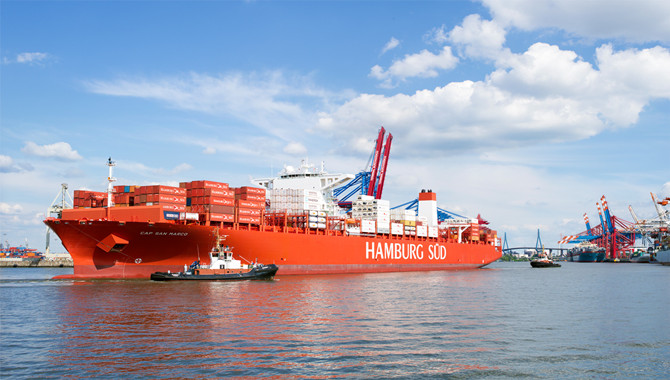 Maersk to integrate Hamburg Süd and Sealand
Maersk to integrate Hamburg Süd and Sealand 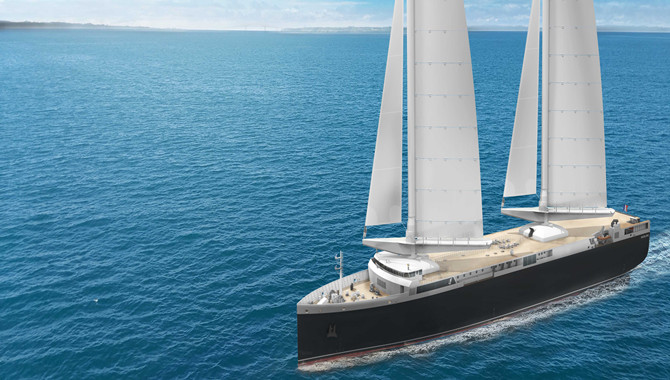 Launch of the construction of the first Ro-Ro saili
Launch of the construction of the first Ro-Ro saili 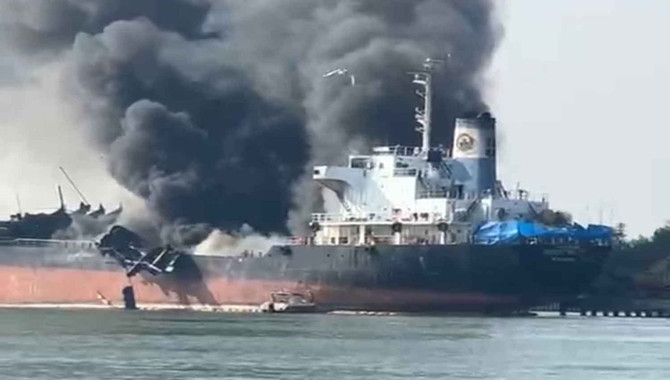 Oil tanker explosion kills at least 3 in central Th
Oil tanker explosion kills at least 3 in central Th 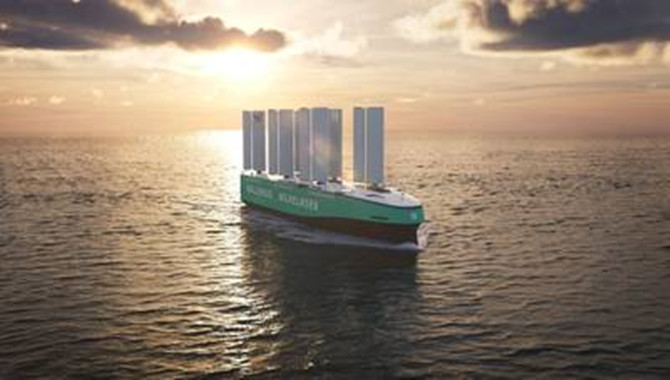 Wind-powered RoRo Vessel Secures €9 Million in EU
Wind-powered RoRo Vessel Secures €9 Million in EU 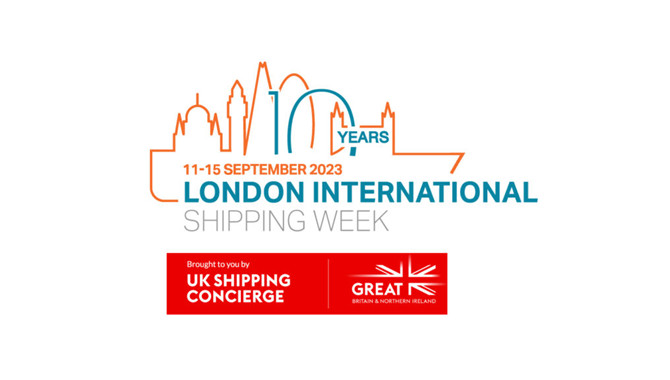 London plays a pivotal role as shipping seeks to re
London plays a pivotal role as shipping seeks to re 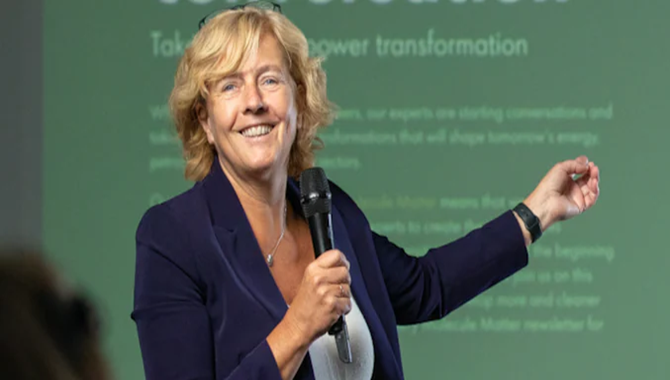 Shell unveils five energy sector trends to watch in
Shell unveils five energy sector trends to watch in